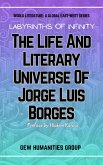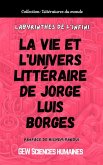Gabriel García Márquez (19272014) was one of the most celebrated and influential writers of the 20th century. A Colombian novelist, journalist, and Nobel laureate, he revolutionized modern literature with his signature style of magical realism, blending the fantastical with the everyday to create stories that feel both mythical and deeply human. His works, rich with political and historical undertones, explore themes of love, solitude, power, and destiny, making him a literary giant not only in Latin America but across the world.
It was his groundbreaking novel, *One Hundred Years of Solitude* (1967), that catapulted him to international fame. With its poetic prose, labyrinthine storytelling, and unforgettable characters, it became a defining work of magical realism and solidified García Márquez as a literary legend.
Throughout his career, García Márquez used fiction as a means to comment on political realities, like in *Chronicle of a Death Foretold* and *The Autumn of the Patriarch*. His later novel, *Love in the Time of Cholera* explored themes of love, obsession, and the passage of time, earning a place among the greatest love stories ever written. Despite his literary success, García Márquez remained deeply engaged in politics. He was an outspoken critic of imperialism, a supporter of revolutionary movements in Latin America, and a close friend of Fidel Castro.
His political views often led to tensions with Western governments, and for years, he was denied a U.S. visa. However, his literary achievements transcended political divides, and in 1982, he was awarded the **Nobel Prize in Literature** for his ability to "combine the fantastic and the realistic in a richly composed world of imagination, reflecting a continent's life and conflicts."
For longtime admirers and new readers alike, Gabriel García Márquez: Chronicler of Enchantments and Realities illuminates how a boy from a forgotten Colombian town became a literary legend, whose stories continue to enchant, challenge, and inspire. In an age of disenchantment, Márquez's belief in the power of storytellingto heal, to resist, to imagine a better worldfeels more urgent than ever. This book is both a tribute and an invitation: to lose oneself in the labyrinths of Macondo, and to discover, as Márquez once wrote, that "life is not what one lived, but what one remembers and how one remembers it in order to recount it."
Dieser Download kann aus rechtlichen Gründen nur mit Rechnungsadresse in A, B, CY, CZ, D, DK, EW, E, FIN, F, GR, H, IRL, I, LT, L, LR, M, NL, PL, P, R, S, SLO, SK ausgeliefert werden.









